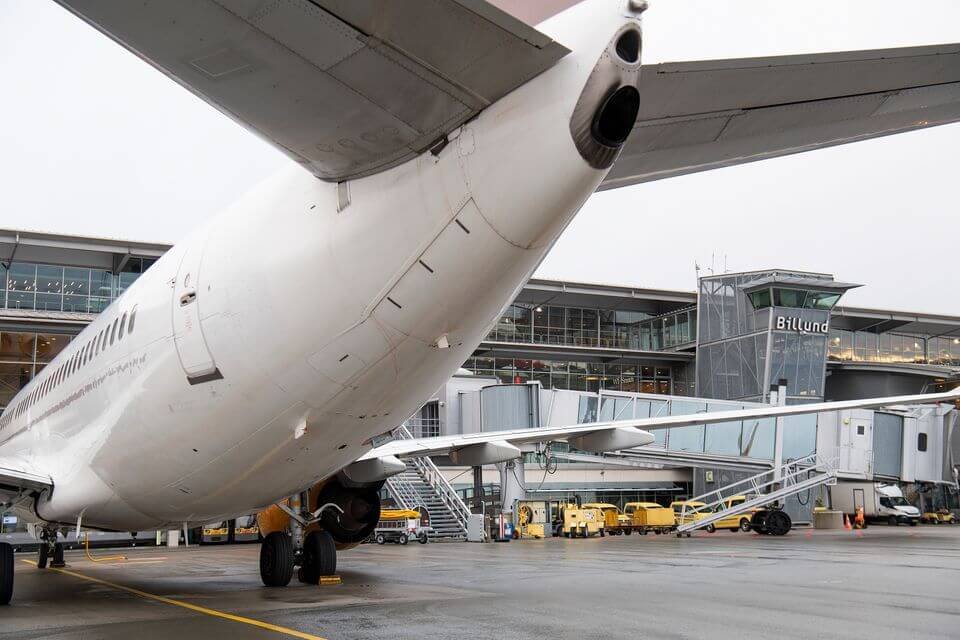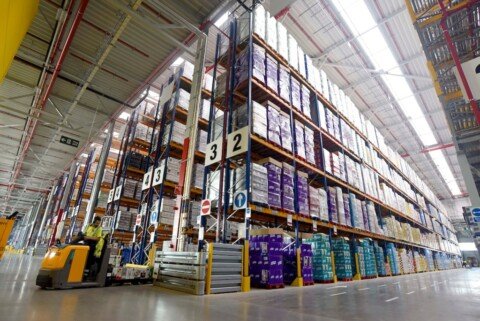Amidst the pandemic, the global air cargo industry stakeholders—airlines, airports, freight forwarders, shippers, custom agents and ground handling agents alike are truly living the common dream of building user-friendly multimodal Air Cargo Hubs which will be safe and secure, green, automated, connected and smart. Experts believe greater collaboration between all the industry stakeholders, closer integration of physical handling systems and advanced information technology will further boost the efficiency of Air Cargo Hubs. Additionally, the future air cargo hubs are also expected to respond to the growing demands of e-commerce and digitalisation alongside managing the increasing volumes of varied special and critical cargo in the coming years, writes Ritika Arora Bhola.
In the world’s history, the ongoing COVID-19 crisis will be known as one such unprecedented event which brought the entire world to a standstill. The crisis, even led the biggest air cargo carriers like Emirates SkyCargo, Lufthansa Cargo and Qatar Airways Cargo, etc. to deal with massive financial losses, cargo capacity crunch, supply chain disruptions and huge quantities of cargo stranded at the origin or destination airports.
Not only, ‘the crisis hit the industries hard, worldwide, but also threw thousands of programs generating forecasts, planning and scheduling into chaos and its on-going effects will no doubt create an anomaly in the air cargo statistics for the decades to come. However, despite the numerous challenges and decline in growth, the global air cargo sector continued with the steady movement of essential commodities, pharmaceutical products and medical equipment and now COVID-19 vaccines. The global air cargo industry continued with the impressive infrastructure and technological developments at the airports, cargo terminals, airlines, etc. for efficient operations.
While, freight forwarders, globally are in the process of embracing ‘100 per cent digitalisation of business operations’, airports are engaged in massive efforts to bring in efficiency and fluidity in working to become future ‘Air Cargo Hubs’ by establishing world-class huge cargo complexes and cold chain facilities.
Airports have also invested whopping amounts in improving freighters handling and conducting environment-friendly cargo operations. Air cargo carriers on the other hand, invested into ‘Preighters’ and Sustainable Aviation Fuel (SAF) to make supply chain operations more smooth and eco-friendly.
Now, after almost two years since the outbreak of COVID-19 pandemic, the global air cargo industry is also witnessing trivial growth in terms of cargo volumes and transportation.
Though, latest statistics and forecasts indicate clear skies ahead for the air cargo industry, a bright outlook doesn’t really mean there isn’t turbulence up ahead. Knowing what to look out for and planning for the future of the air cargo industry will definitely help to smooth out what might otherwise be a bumpy ride.
According to IATApredictions, the global air cargo will account for more than 13 per cent of airline revenues in 2021-2022.
Air-freight volumes will increase by 3 per cent a year on average until 2030, says an analysisby McKinsey & Company.
Digitisation is also expected to significantly transform the air cargo industry as the pandemic has accelerated the industry’s ability to adapt the technology.
Another report by McKinsey points out, e-commerce trade has also grown in the last 15 years by 20 per cent year-on-year and is expected to continue to grow at a growth rate of between 10 and 15 per cent over the next 10 years.
Cross-border e-commerce is also expanding quicker than overall online sales (at a rate of about 25 per cent a year). It is expected to present a sizeable opportunity for aircraft cargo charter in the coming years.
Collaborations and Integrations: Only factor for success of air hubs
Experts predict collaborations between air-freight shippers, freight forwarders, airlines and cargo charter brokers, will be needed to better forecast volumes and peak demand in order to deliver cargo when needed and avoid surplus. While there is plenty of investment happening in developing cargo terminals infrastructure and facilities, focus should be on automation which is critical to the future of the air cargo industry, says experts. Adding to it, major aircraft manufacturers as well as dozens of startups are in the process of developing future aircraft technology that will allow self-flying planes/ drones to safely and efficiently deliver cargo services to customers around the world. In the future IATA expects “smart, balanced and data-driven” regulation to increase in the air cargo industry. As there is forecast to be more goods transported by air freight and drone delivery in the future, and safety has been placed at the center of all new regulations.
Additionally, greater collaboration between all the industry stakeholders, closer integration of information technology and physical handling of systems will be keys to further improving the efficiency of air cargo hubs. And alongside those developments, experts believe, future air cargo hubs will also need to manage the implementation of additional security requirements, respond to the particular demands of e-commerce, and cater for increasing volumes of bellyhold cargo.
Cargo facilities of the Future
Ultimately, the health of global air cargo industry—airports and airlines is largely dependent on the ‘Future Performance of Air Cargo Hubs’ around the world, therefore, it is hoped that despite the ongoing COVID-19 crisis, global trade tensions, governments will continue with noteworthy developments and investments in the infrastructure, which will profit everyone—air cargo industry, customers and global economy.
The future success of the air cargo industry is also going to depend on the stakeholders’ ability, throughout the supply chain, to adapt to these changes with speed and agility, and to form strategic partnerships.
The challenges ahead, otherwise, are too complex for any company to survive and win on its own.
According to various reports, right now about 35 per cent of world trade value is transported by air. The next 15 years will no doubt bring critical change and development to the industry as world GDP grows alongside human population demanding delivery of more high value goods than ever before.
With speed and reliability as air cargo’s main strengths, the industry will continue to be the preferred solution for transporting time-sensitive, higher value goods.
And how well they manage to do this will completely depend on the performance of Air Cargo Hubs around the world and industry’s ability to master the many challenges it faces in the next decade and beyond.
Airports worldwide have developed outstanding infrastructure related to cargo handling and transportation. Significant innovations have been done to enhance the future performance of air cargo hubs.
“The cargo facility of the future will be an integrated facility that will be safe, secure, green, automated, connected and smart. Technology will be one of the main catalysts for change in air cargo and the driver for process transformation. Robotics, IoT, drones and the use of data analytics will shape the future of air cargo and logistics sector. Airport Infrastructure will have to be upgraded to meet the needs of this changing world,” Daniel Bircher, Managing Director, Zurich International Airport exclusively informs CARGOCONNECT.
“Airports will have to develop to digital transfer hubs. Data sharing will have to gain more trust and acceptance by industry representatives so that everyone understands the benefits from sharing information,” remarks Max Philipp Conrady, Head of Cargo at Fraport AG.
Wilson Kwong, Chief Executive Officer, Hong Kong Air Cargo Terminal (Hactl) on the other hand tells, “The key to successful hubs of the future will be a strong community and an airport authority which maintains close and open dialogue.”
Geert Aerts, Director Cargo & Logistics at Brussels Airport Company feels,“The future needs to be sustainable. Innovation in processes, technologies and infrastructure is required. There’s need for – Balance, People andProsperity.”
Steven Polmans, Chairman, TIACA and Chief Customer Officer at Nallian opines, “I would love to see that Air Cargo Hubs become multimodal connected gateways for logistics, offering transparent and seamlessly integrated operations to their customers and stakeholders, supported by modern infrastructure, including the digital component, where all stakeholders work more closely together than they do today.”
Steven Verhasselt, Former Commercial Director at Liege Airport aptly points out, “The air cargo hub of the future should be meeting the requirements of the cargo-owners, who can be airlines, freight forwarders, shippers, e-commerce platforms or consignees.”“Air Cargo hub of the Future, should have multi-user specialized facilities for product categories, rather than single user facilities who offer a bit of everything,” he adds.
Agreeing with Steven, Lim Ching Kiat, Managing Director- Air Hub Development at Changi Airport Group comments, “Future air cargo hubs must be agile and ready to take on trade and supply chain dynamics and volatility. Connectivity, undoubtedly, will remain paramount such that shipments can be airfreighted globally in a timely and efficient manner.”
“My vision for the future is to see major air cargo hubs using modern technology to connect airports so that we can streamline trade. This is my idea of promoting what I call “trade corridors,” adds in Elliott Paige, Director- Air Service Development, Hartsfield Jackson Atlanta International Airport (ATL).
Meanwhile, Videh Kumar Jaipuriar, CEO, Delhi International Airport Ltd says, “The future air cargo hubs should have enhanced collaboration on Information system for essential physical handling of infrastructure across the air cargo network. The advance sharing of information will optimise planning between all stakeholders. Also, there is a need for enhancement of connectivity and type of aircraft being deployed on the major cargo routes.”
Pradeep Panicker, CEO, Hyderabad International Airport Ltd says no differently, “Our industry needs to redouble efforts to improve the service offerings and focus on improving collaboration and integration across the value chain bringing together stakeholders and cargo services to offer turnkey solutions to the shippers and consignees.”
József Kossuth, Head of Cargo, Budapest Airport also shares his view point, “If an airport would like to develop in air cargo it must be active, even pro-active in the community and invest into the community work, similarly to the cargo infrastructure, these are equally important for the success.” In this COVER STORY, CARGOCONNECT highlights the brilliant work being done by airports worldwide in terms of infrastructure development and upgradation, automation and technology deployment and community collaboration with a common mission to build highly efficient and future forward AIR CARGO HUBS.







